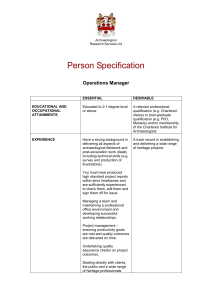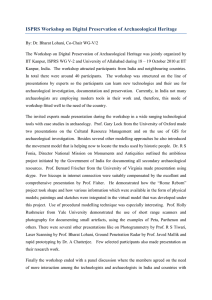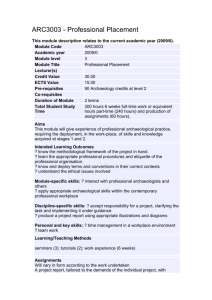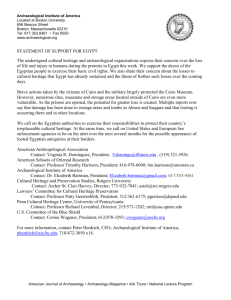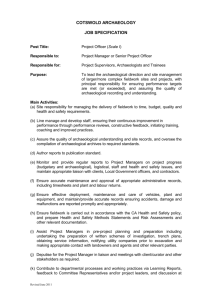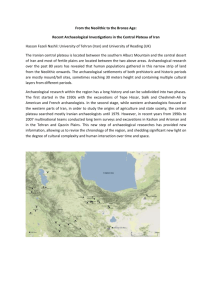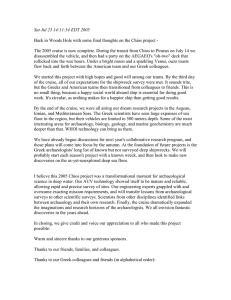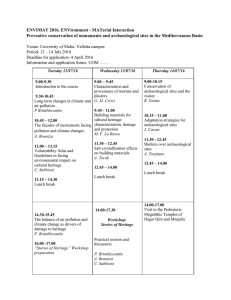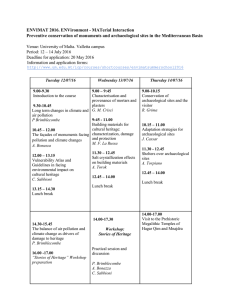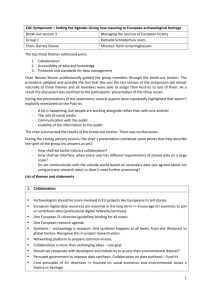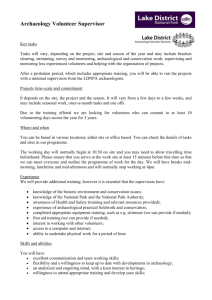Horizon 2020 Call: H2020-REFLECTIVE-6
advertisement
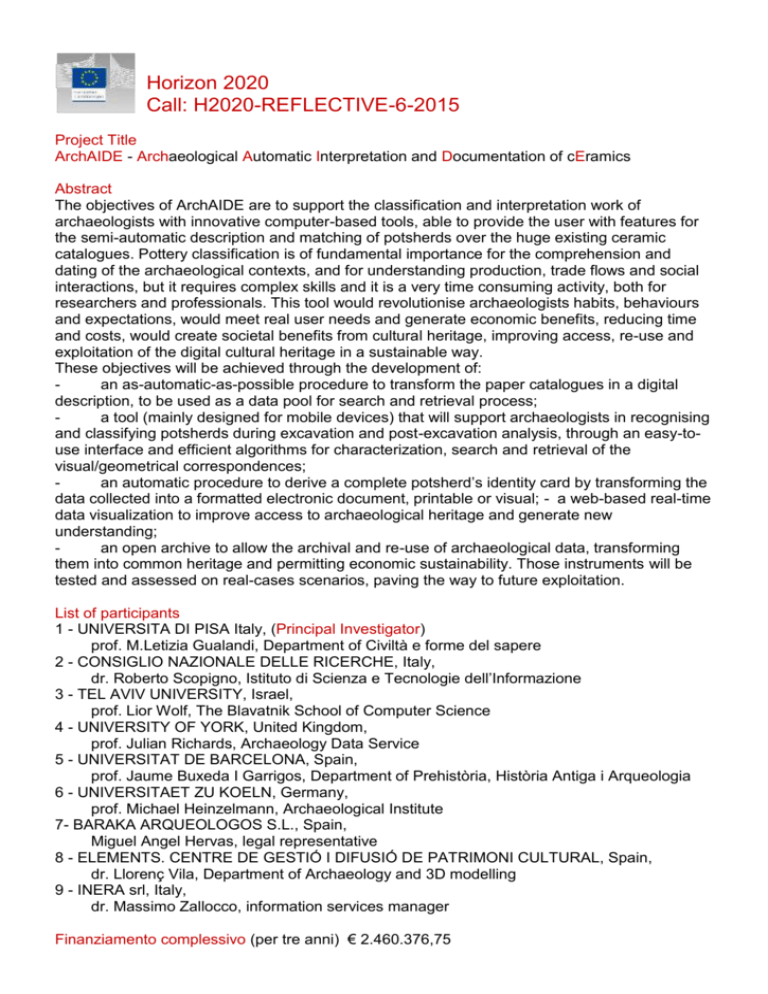
Horizon 2020 Call: H2020-REFLECTIVE-6-2015 Project Title ArchAIDE - Archaeological Automatic Interpretation and Documentation of cEramics Abstract The objectives of ArchAIDE are to support the classification and interpretation work of archaeologists with innovative computer-based tools, able to provide the user with features for the semi-automatic description and matching of potsherds over the huge existing ceramic catalogues. Pottery classification is of fundamental importance for the comprehension and dating of the archaeological contexts, and for understanding production, trade flows and social interactions, but it requires complex skills and it is a very time consuming activity, both for researchers and professionals. This tool would revolutionise archaeologists habits, behaviours and expectations, would meet real user needs and generate economic benefits, reducing time and costs, would create societal benefits from cultural heritage, improving access, re-use and exploitation of the digital cultural heritage in a sustainable way. These objectives will be achieved through the development of: an as-automatic-as-possible procedure to transform the paper catalogues in a digital description, to be used as a data pool for search and retrieval process; a tool (mainly designed for mobile devices) that will support archaeologists in recognising and classifying potsherds during excavation and post-excavation analysis, through an easy-touse interface and efficient algorithms for characterization, search and retrieval of the visual/geometrical correspondences; an automatic procedure to derive a complete potsherd’s identity card by transforming the data collected into a formatted electronic document, printable or visual; - a web-based real-time data visualization to improve access to archaeological heritage and generate new understanding; an open archive to allow the archival and re-use of archaeological data, transforming them into common heritage and permitting economic sustainability. Those instruments will be tested and assessed on real-cases scenarios, paving the way to future exploitation. List of participants 1 - UNIVERSITA DI PISA Italy, (Principal Investigator) prof. M.Letizia Gualandi, Department of Civiltà e forme del sapere 2 - CONSIGLIO NAZIONALE DELLE RICERCHE, Italy, dr. Roberto Scopigno, Istituto di Scienza e Tecnologie dell’Informazione 3 - TEL AVIV UNIVERSITY, Israel, prof. Lior Wolf, The Blavatnik School of Computer Science 4 - UNIVERSITY OF YORK, United Kingdom, prof. Julian Richards, Archaeology Data Service 5 - UNIVERSITAT DE BARCELONA, Spain, prof. Jaume Buxeda I Garrigos, Department of Prehistòria, Història Antiga i Arqueologia 6 - UNIVERSITAET ZU KOELN, Germany, prof. Michael Heinzelmann, Archaeological Institute 7- BARAKA ARQUEOLOGOS S.L., Spain, Miguel Angel Hervas, legal representative 8 - ELEMENTS. CENTRE DE GESTIÓ I DIFUSIÓ DE PATRIMONI CULTURAL, Spain, dr. Llorenç Vila, Department of Archaeology and 3D modelling 9 - INERA srl, Italy, dr. Massimo Zallocco, information services manager Finanziamento complessivo (per tre anni) € 2.460.376,75
